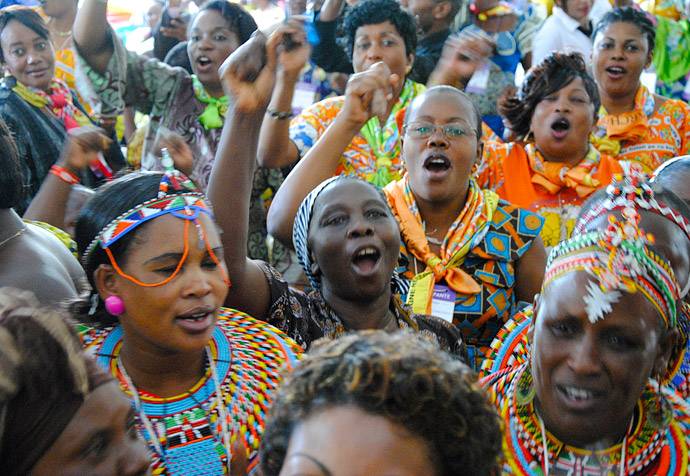Blog 2
Gender Equality In the Democratic Republic Of The Congo
The Democratic republic of the Congo (DRC) is the second largest country in Africa but also one of the poorest. The DRC has a population of 67.8 million people, which contain 51% women with 70% of the population living below the poverty line. Women currently inhabit only 7.2% of positions of high level in parliament and government. 52% of Congolese women have also survived domestic violence and 39% have reported being threatened or injured.
 Women in Congo are often victims of harmful traditional practices like early marriage, teenage pregnancies, and exceptions of girls' roles in the house hold" (Bridging the Gap, 2020 p. 3). Very few Congolese women have access to good jobs and women and girls in general have less access to education than men and boys. These factors contribute to the lack of sensitivity to gender issues and a proper system to address the issues of sexual abuse. Which also leads to unwanted pregnancies that limit girls' participation in school.
Women in Congo are often victims of harmful traditional practices like early marriage, teenage pregnancies, and exceptions of girls' roles in the house hold" (Bridging the Gap, 2020 p. 3). Very few Congolese women have access to good jobs and women and girls in general have less access to education than men and boys. These factors contribute to the lack of sensitivity to gender issues and a proper system to address the issues of sexual abuse. Which also leads to unwanted pregnancies that limit girls' participation in school.

The US $100 million GPE grant for 2013-2017 was a start on achieving SDG 5, "it aimed on addressing gender inequality in two provinces: Kasa West and Equateur" (Boumaiza, 2020, p. 6). The strategy aimed too accelerate progress towards gender equality in education and contribute to Congo's commitment to eliminate gender-based discrimination.
The DRC fuels the tech sector and "the land also feuls most household income with women planting and harvesting plantains and cassava" (Tackling Climate Change, 2018, p. 2). Climate change is destroying crops and valuable farmland while Congo's valuable resources are taken and used for the benefit of people outside of the country's borders.
Because almost all of Congo relies on charcoal as their primary sources of energy and the fumes can be very harmful to the women hunched over the charcoal choke stoves for days, the MATCH fund will kill two birds with one stone. To combat this issue The MATCH Fund "will support eight women to attend a solar energy training" (Tackling Climate Change, 2018, p. 6) and those women will return from the training to train other women. Social energy will reduce the need for charcoal and give the women the power to turn lights on, take back land, and dictate who controls TV or radio dials. Climate change is ironically just want The Democratic Republic of The Congo needed to achieve gender equality.
References
Boumaiza, I. G., Subrata Dhar and Carolina Valenzuela, Aghayere, O. K., GPE Secretariat | 2 comments, Secretariat, G., & |. (2020, February 10). Bridging the gender gap in the Democratic Republic of Congo. Retrieved from www.globalpartnership.org/blog/bridging-gender-gap-democratic-republic-congo
(Cambridge, B. G. (2012, March 12). Oppression of women in the Democratic Republic of Congo, "the Rape Capital of the World". Retrieved from www.marxist.com/opression-of-women-in-congo.htm
Member, P. T., Garcha, C., & Blogger, G. (2019, October 08). Congolese women activists shut out of event at Global Summit to End Sexual Violence in Conflict - The F. Retrieved from thefword.org.uk/2014/06/congolese_women/
Tackling Climate Change in the Democratic Republic of the Congo. (2018, April 19). Retrieved from matchinternational.org/climate-change-drc/
Where we are : Eastern and Southern Africa : Democratic Republic of Congo. (n.d.). Retrieved from africa.unwomen.org/en/where-we-are/west-and-central-africa/democratic-republic-of-congo
Hi Ore, your blog has very insightful information regarding the inequality of genders. It's really heartbreaking to read how much these girls and women have to suffer just because of their gender. I'm glad steps are being taken to stop the unfairness and hopefully these women have future opportunities to have equal treatment.
ReplyDeleteHello Ore, I enjoyed reading your blog. It's so sad to read that women in this day and age are still suffering from this.
ReplyDelete